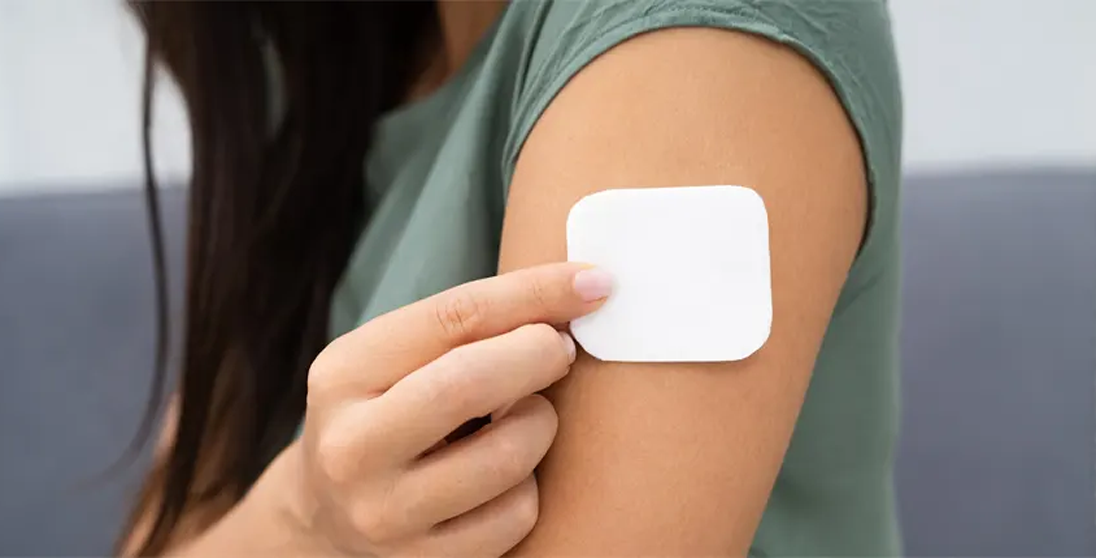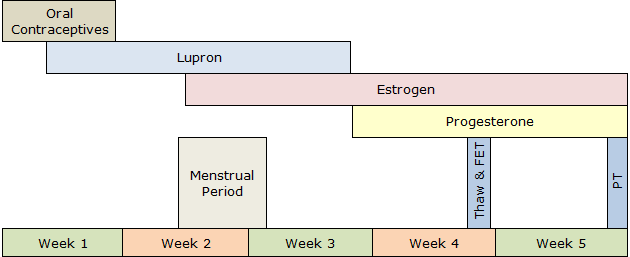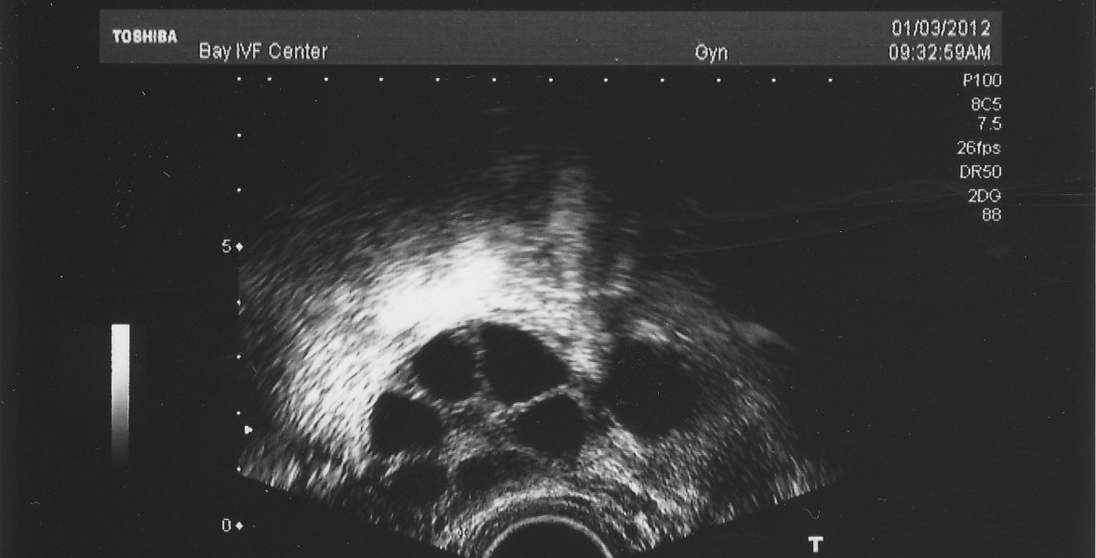


When to Stop Estrogen After IVF
The question of when to stop estrogen after IVF treatment relates more appropriately to the Frozen Embryo Transfer treatment


Estrogen administration is not an integral part of IVF treatment, but it is essential for Frozen Embryo Transfer.
There are several different forms of endometrial lining stimulation protocols, each with many modifications. Your treatment is always individualized.
Below is an example of endometrial stimulation protocols used at Bay IVF. Your cryopreserved embryo transfer cycle may take less or more time to complete.
Endometrial Stimulation Example:

The treatment begins with taking oral contraceptives. They are started within the first four days of the beginning of a menstrual cycle. A few days after the last pill, you will have a menstrual period, and the endometrial stimulation with estrogen will begin at that time.
Estrogen is typically administered as skin patches. The endometrial lining preparation is straightforward, and you should not expect any side effects.
Supplementation with estrogen and progesterone must continue until the placenta produces enough hormones to sustain the pregnancy. You will be closely monitored for 6 to 8 weeks as this transition takes place. Once all medications are discontinued, you will be referred to your OB doctor for the remainder of your obstetrical care.
The answer to the question of when to stop estrogen after a successful treatment depends on the stage of pregnancy development. Usually, estrogen supplementation can be stopped approximately eight weeks into the pregnancy.



Initial Appointment Questions
When you call to schedule your consultation, one of our Front Office Coordinators will ask you a short series of questions regarding your reproductive history.








